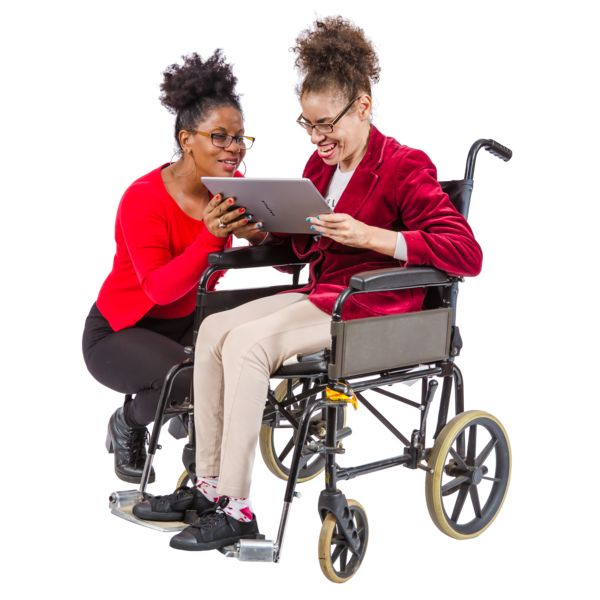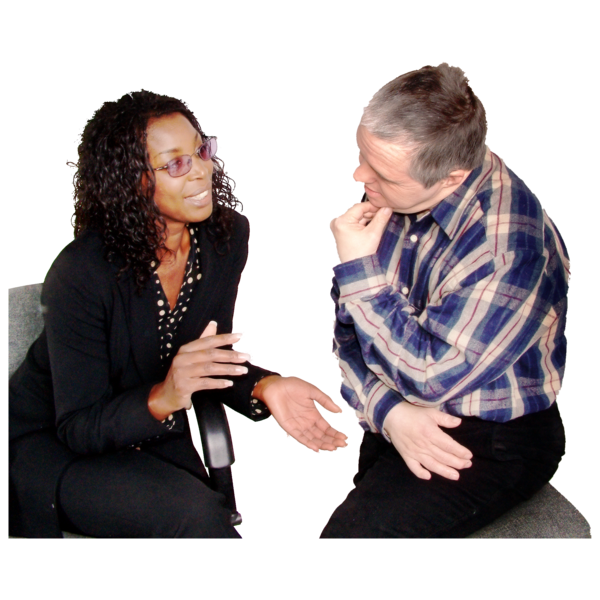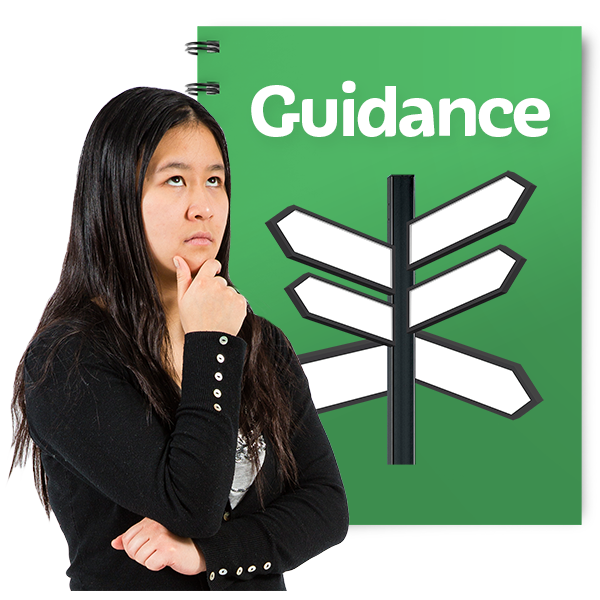What to do if you think someone is being abused?
This information is for families or others who are concerned that a family member or someone they know might be being abused or is at risk of abuse.
What is meant by ‘abuse’?
Abuse can take place anywhere. Families are often particularly concerned when their family member is far away from home and they are unable to visit regularly.
Abuse means illegal, improper or harmful practice. It can take a number of different forms, including:
- physical abuse
- sexual abuse
- psychological or emotional abuse
- financial abuse
- neglect of acts of omission are also forms of abuse.
The person who is responsible for the abuse is often well known to the person abused. They could be:
- a paid carer or
volunteer
 A volunteer is someone who helps out by doing work for free.
A volunteer is someone who helps out by doing work for free.
- a health worker, social care or other worker
- a relative, friend or neighbour
- an occasional visitor or someone who is providing a service
- someone who deliberately exploits vulnerable people
- someone who uses services (people who use services may intentionally or unintentionally abuse others and may require support to overcome abusive behaviour).
How can you tell if someone with a learning disability is being abused?
If you know someone well you may notice changes in their behaviour or appearance. These might be big or small changes, and might happen over a long period of time or suddenly.
Here are some changes that might mean someone is being abused. This is not a full list, but these are some of the things you can look out for:
- they have physical injuries without explanation
- they become withdrawn, tearful or anxious
- they show signs of fear or talk about not feeling safe
- they are hungry or dehydrated
- they start self-harming
- they start communicating differently or stop communicating altogether
- their needs change, for example they need or ask for different types of care or different levels of care
- their skills change, for example self-care or continence management skills
- they behave differently or seem more or less happy and relaxed with different staff or in different environments e.g. at their day centre compared to their home.
It can be difficult to be sure that someone is being abused, but if you are concerned that abuse might be going on, we would always encourage you to raise your concerns.
What you should do if you think that someone with a learning disability is at risk of, or is, being abused
- If at any point you believe your family member or someone you know is in immediate danger you should contact the police. (The emergency police number is 999, the non-emergency number is 101).
- If there is no immediate danger, you should report your concerns about abuse to the local authority in which the person is living, immediately. Each local authority has an adult safeguarding team (sometimes called an adult protection team) – the details should be on your local authority
website
 A website is a page you can go to on the internet like Google or YouTube.
or you can call them and ask. You should contact the adult safeguarding team if you have any suspicion that someone is at risk of abuse.
A website is a page you can go to on the internet like Google or YouTube.
or you can call them and ask. You should contact the adult safeguarding team if you have any suspicion that someone is at risk of abuse. - If you do not receive a swift response from the safeguarding team letting you know whether or not they plan to investigate or you are not happy with the outcome, then you may wish to make a formal complaint to the local authority in which the person lives as soon as possible. You can also report your suspicions to the police.
- If the matter is not resolved quickly and decisively by the service provider, the local authority and/ or the police, you could approach a
community
 A community is the people and places in an area.
care solicitor who may be able to advise you about the best course of action and liaise with the relevant people on your behalf.
A community is the people and places in an area.
care solicitor who may be able to advise you about the best course of action and liaise with the relevant people on your behalf. - If you are worried about raising an issue, you may be able to get support from your family member’s
advocate
 An advocate is a person who can help you have your say. An advocate can speak up for you if you find it hard.
(if they have one), a friend or an
organisation
An advocate is a person who can help you have your say. An advocate can speak up for you if you find it hard.
(if they have one), a friend or an
organisation
 An organisation are a group of people who work together.
that can provide practical and/ or emotional support – take them with you for support at meetings.
An organisation are a group of people who work together.
that can provide practical and/ or emotional support – take them with you for support at meetings. - You can also consider reporting your concerns to the Care Quality Commission (CQC) who inspects health and social care services. The CQC tends to focus on the services as a whole, rather than individual complaints. You may want to register concerns with them so they take these into account when inspecting a service. You can contact them by letter, phone or on the CQC website.
Further information
If you want further information and advice regarding abuse, please contact the
Learning Disability
 A learning disability is to do with the way someone's brain works. It makes it harder for someone to learn, understand or do things.
Helpline on 0808 808 1111 or helpline@mencap.org.uk.
A learning disability is to do with the way someone's brain works. It makes it harder for someone to learn, understand or do things.
Helpline on 0808 808 1111 or helpline@mencap.org.uk.
If you are a member of staff working in the NHS or social care sector and you have concerns about abuse in your workplace, you can contact the Whistleblowing Helpline on 08000 724725 or enquiries@wbhelpline.org.uk or visit the Whistleblowing Helpline website.
You may also find it useful to read our Meeting the Challenge guides.
Useful resources
We've created the following factsheets to help you with the benefits application, Care Act
assessment
 An assessment is a way of finding out what help a person needs. When you have an assessment, you might have to go to a meeting or fill in a form.
and follow-up process:
An assessment is a way of finding out what help a person needs. When you have an assessment, you might have to go to a meeting or fill in a form.
and follow-up process:
- Delays in receiving benefits (PDF, 52 KB) - this factsheet explains the options that may be available to you whilst you're waiting for your first payment.
- Mandatory reconsiderations (PDF, 48 KB) - this factsheet explains what to do if you wish to challenge a benefit decision.
- Reasonable adjustments (PDF, 425 KB) - this factsheet explains what changes should be made by the Job Centre and DWP for people with a learning disability who are looking to claim benefits.
- What happens next (PDF, 367 KB) - this factsheet sets out what should happen after your Care Act assessment.
- Reviews and new assessments (PDF, 219 KB) - this factsheet is for people who already receive care and support through a package of social care and what they can expect from the review and assessment process.
- Direct payments (PDF, 72 KB) - this factsheet explains how people with a learning disability and their families can receive
direct payments
 Direct payments are when the money for your care and support, or benefits, is paid to you.
to arrange their social care support themselves.
Direct payments are when the money for your care and support, or benefits, is paid to you.
to arrange their social care support themselves.
How to get the support you need
Contact the Learning Disability Helpline for
guidance
 Guidance means being given clear instructions to be able to do something well.
and information about what support we can offer you.
Guidance means being given clear instructions to be able to do something well.
and information about what support we can offer you.
Or why not take a look at our online community? This is a place for parents and family carers of people with a learning disability to share experiences, advice and support.
